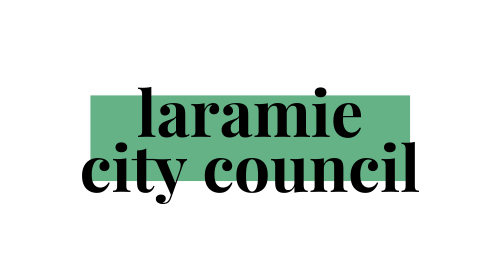ASUW to address city council on tenant rights, food insecurity
During a work session tonight, city councilors will hear from University of Wyoming student leadership, as well as the university president, concerning issues of importance to the campus and students.
University of Wyoming student leadership will address the Laramie City Council tonight, highlighting action on everything from food insecurity to the rights of rental tenants.
According to presentation materials, they will touch on the possible creation of a Tenant and Landlord Rights Document.
ASUW President Hunter Swilling and Executive Allison Brown will also elucidate the council on student senate’s mental health and COVID-19 education initiatives, while touching on the city’s ongoing discussions about police oversight.
“The purpose of the Student Government of the Associated Students of the University of Wyoming is to serve our fellow students in the best manner possible through accurate representation, professional interaction with campus programs and organizations, and responsible, effective leadership,” their presentation begins.
ASUW’s wide-ranging address will take place during a council work session dedicated to hearing updates from UW. University President Ed Seidel will also address the council on current issues of note facing the campus.
UW is an important constituency within the city. The institution owns one-third of all land within city limits, and while it coordinates with the city on a number of projects, it also regularly comes into conflict with local government. Many of those conflicts involve power struggles, whether the university seeks to close 15th Street and unite its campus, or whether it wants to drill its own wells, a bid for autonomy that has impacts on the city’s own water system management.
But ASUW will focus on issues specific to the student body.
According to the presentation, nearly 37 percent of the student population does not have enough to eat. A survey conducted last year puts that estimate even higher — at 45 percent. The problem remains despite ASUW’s efforts, establishing a food pantry and a “meal swipe sharing program,” which allows students to donate unused meal credits from their meal plan.
In one of Wyoming’s poorest communities and the state’s only university town, many students face another barrier to living safe, healthy lives: a lack of decent housing.
About half of the city’s housing units are rentals — much higher than the state’s average of about one-third — but that doesn’t mean UW students have much freedom in choosing where to live.
Each summer in Laramie sees the reemergence of a well-known phenomenon — a rental housing shuffle, in which many of the city’s residents leave or flee their current housing situation, seeking new landlords, housing or roommate configurations.
Many settle on sub-par units out of fear they won’t find better accommodations. Some move into dangerous housing situations when they finally find a unit that will allow them to keep their dog or cat, or that isn’t too far from campus.
That leaves many rental tenants not only in unsanitary or unsafe housing conditions, but also in the power of aggressive, demanding landlords and slumlords.
The landlord community in Laramie is well-organized and has shown out in force to squash rental regulations in the past. There is renewed interest in rental regulations following revelations that one (now resigned) city councilor who helped kill rental regulations in 2019 was, even at that time, working with one of Laramie’s most notorious landlords.
ASUW’s presentation tonight claims they conducted surveys of the student body, finding at least 130 off-campus students who raised concerns about their landlords or property management companies, while some 800 students suggested tenant rights were one of their top five concerns about the community.
"They [Landlords] hold the power when it comes to situations,” one student told the survey.
"It would be nice to have some policies in place in Laramie that actually protect tenants,” another said. “There is really nobody to turn to without expensive legal fees."
Students cited landlords misrepresenting units or leases, lack of communication and lease violations as primary concerns.
"We have had a horrible, horrible experience with our rental company,” one student told the survey. “It is probably one of the worst things I have ever dealt with."
At the meeting tonight, Swilling and Brown’s presentation will voice support for the creation of a Tenant and Landlord Rights Document.
The council work session will follow a special meeting announced just yesterday. The special meeting was set to approve a resolution supporting public health measures, but the details of the proposed resolution were unavailable at press time.



